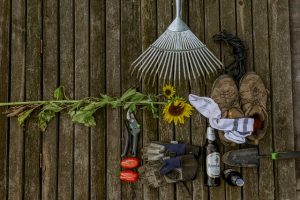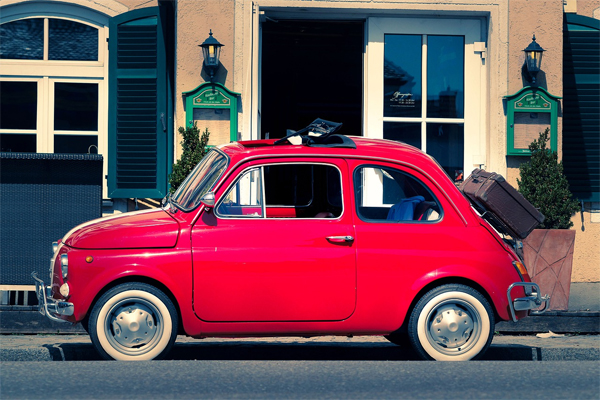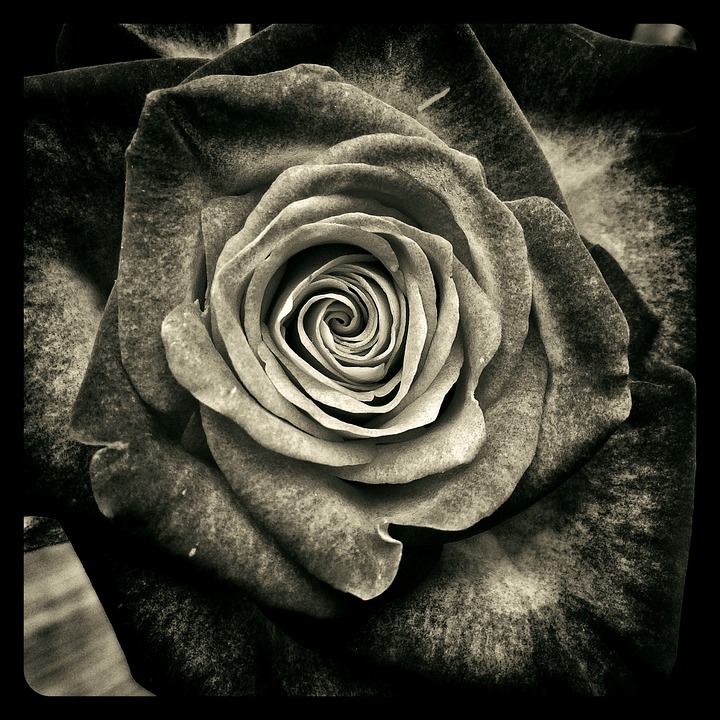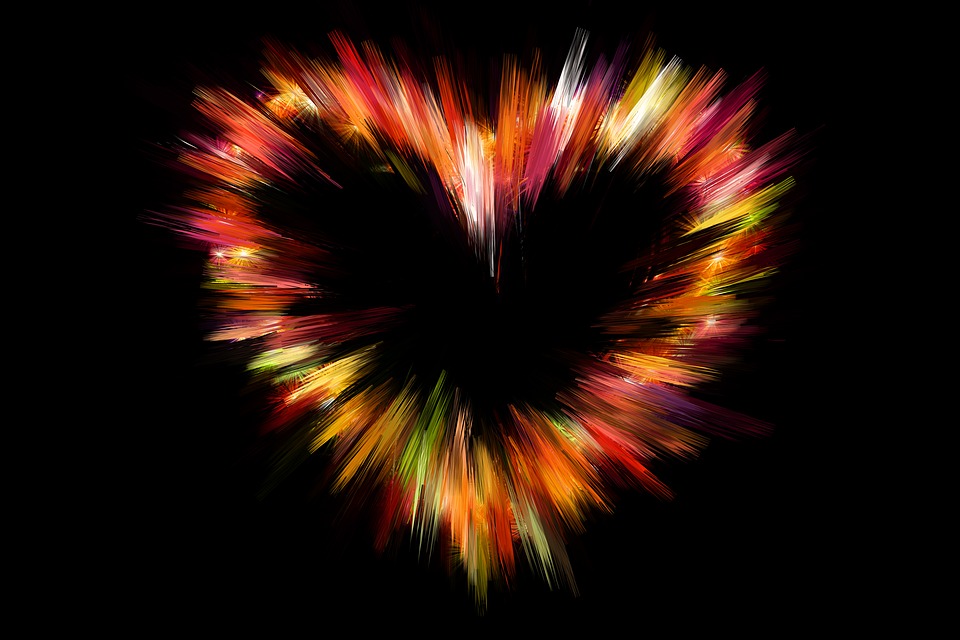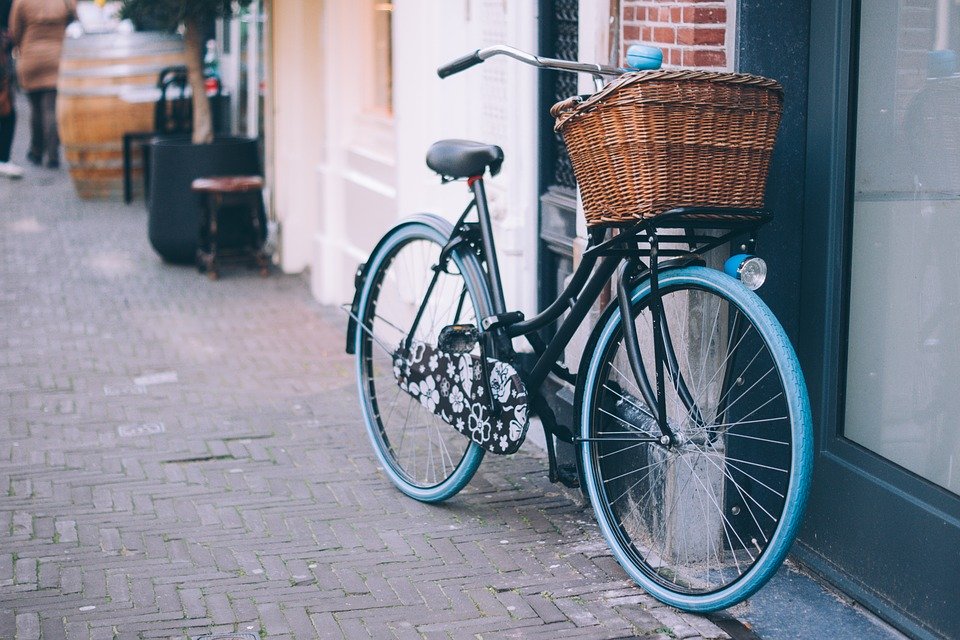Deliverance it said.
I have been reading. I mean I do read especially if I’m waiting. For a delivery. You become very aware of time. When I’m logged on, when I’m not. You find yourself kind of quantifying your day by how long and how much; like your score.
Anyway, back to what I was saying. I am part cyborg. Or rather we all are. I read somewhere that increasingly we’re kind of fused with our gadgets. Actually it’s not gadgets as a term – I mean, it sounds like they’re toys – but it’s more than that, and anyway they aren’t toys. In fact if I was talking toys, we’re the toys, or, rather, we feel like toys, as though we’re toyed with. You know – the ones the baby suddenly throws out.
Thrown out, or, rather, dropped; it’s like, I imagine, a bungee jump. You’re falling through life, I don’t know, eating breakfast or digging the garden? And suddenly, ’ding dong,’ it chimes. You’re yanked upward or out of it, delivery! And then it’s like, not exactly panicky, just fiddly – laces, pulling the fleece or jacket or maybe even waterproofs on, faffing but only until you’re on the bike, and the phone is mounted on the handlebars, then it goes smoother as your legs kick in, a change of gear. Almost like film being reversed, because you don’t feel completely there; still tasting the eggs.
From there on you can see yourself doing the routine: showing the number, standing back, social distancing, offer the bag, zipping up and back on the bike. Your senses are attuned to the information on the road. Your mind is elsewhere – maybe back at home, or maybe asking will there be another delivery after this. Until you get to the address, when you complete; then you’re back biking it home or ding dong again. This happens whenever you’re logged in; when it doesn’t happen you feel disappointed, because you’re not earning, and when it does you feel disappointed, because you have to sever yourself.
Anyway, reading: this journalist said that technology is becoming more integrated with our lives and work and that algorithms are increasingly ‘making the big decisions.’. He talks about a crisis in liberal democracy. That it has lost its way. It’s becoming less humane: the poor are getting poorer, the one percent are getting richer and governments increasingly are incapable of protecting the interests of the less well off. He says that we are just expected to behave -in particular ways that we’re nudged to, that the market is seen as the highest good, and human beings are no longer special, in themselves, but only ‘big data’ – just a herd whose behaviour can be nudged into particular directions. Technology is part of that. We kind of fit in with it. Not just the web, no, but everything. Social media, it kind of extends us; we live through it but it actually uses us. The power of it for those who own it is big, big data.
And I kind of get that. I do deliveries to people: they pay for food delivery, and we jump, and it is delivered. We are, notionally, clients engaged in a relationship, a business relationship with the company or more specifically the App. We have a very defined part to play, or be played. We do the moving, the physical part. We can say no, but then there’s always the question, will we get another? Will our stats count against us? It’s like sin, karma. Anyway, we don’t really have a choice if we want to get paid; we say yes, and then we do it. We behave by doing the action that they specify. Then we are rewarded. Our fees are increased – not our pay, because we’re not really employed. They invoice us to tell us how much we are receiving.
We are that thing – the zero hours contract thing. All they expect from us is to behave in a particular way, and if we get lucky we get sustenance. But it is quite fickle, the App; it’s an arbitrary god. At least it feels like that. One day it’s all milk and honey: tips galore, short runs, short waits and doubles. You are cooking on gas. But then, will you still love me tomorrow? Clearly, all too often the answer is no. The next day, week or fortnight is a regular desert, with skeletons littering it. Your mind starts playing with you. When it’s going smooth you think you’ve mastered the App.
If I only accept doubles, or short ones or long ones before six, then I will make enough. But the App has no charity. Because then you spend night after night not delivering. Every passing ‘ped’ is someone else receiving blessings, but you’re fated to die. The system always twists the knife. So the App is a cruel, capricious god. Just like the old gods. Just as you feel blessed, a bird shits in your mouth.
Now someone must have coded that, or made it a feature, because there are definite red letter days, and each rider has them and they rarely coincide. It all seems calculated to keep you guessing, hoping that today will be the day. Maybe it’s a behavioural nudge.
He who wrote the book says we can make one powerful choice, that is to refuse. He sees these moments of refusal as the significant moments. He even goes back to the old gods. Apparently the end of the persecution of Christians within the Roman Empire, and the empire’s subsquent adoption of Christianity, came about as people gave up on the daily performance of rituals in temples to those old gods. People recognised that the routine sacrifice and repeated offerings given actually made no difference to the run of fate. The character of the gods in legend and myth was frequently cruel and despotic, as though the storyteller was trying to explain their indifference to the lives of their worshippers.
The algorithms of the gig are similarly disinterested. Nothing moves them other than wealth accrued. The system similarly relies upon a stunted belief that human needs can be easily met by a greasy morsel presented by an economic inferior, kept in line by a system that favours any who own, and that promises a ladder of improvement to those who buy into acquiring first, a bike and then, a moped with all attendant insurance and security paraphernalia – those willing to submit to the futility of chasing the next good day. This all presented as the nature of the world. It is a line that cannot be questioned. The owners have always owned, and everyone needs to be driven by hunger and need. I wonder how, if ever, the rejection of the old gods can ever be echoed by a similar refusal to labour for such meagre reward?
Maybe the virus has created a window through which another vista is visible? It has certainly created a moment. A kind of sustained pause, a buffering point, at which our frantic ritual travel seems more intensely futile. Against the static painted backdrop, we plunge through the night – only the ambulances have similar urgency – every time the notification chimes. Our status as ‘key workers’ has risen. People frequently tip us and comment upon our service to them and the community. Strangely, this kindness of strangers throws the austere fees we receive from the App into sharp relief. This all occurs in a moment when the economy is faltering, economic activity largely halted.
This gap is less bridgeable for some. Many are living on borrowed time. Reserves are stretched. Disposable income is no more. Some who hoard wealth can sit back on their haunches and wait to pick the carcass clean. But we can all make a decision to not be bound by this, to not deliver. To not accept property as the rule. Eat the food you were to deliver. Insist that hoarded wealth in offshore havens pays out and is redeployed. Bankers bail society out rather than the reverse.
The writer I refer to as ‘journalist’, is Paul Mason, who’s book ‘Clear Bright Future’ I highly recommend.
Ian Macnaughton

Ian is an actor, writer and Deliveroo courier who lives in London.
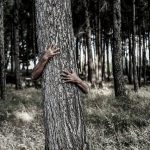 The Watchers
The Watchers
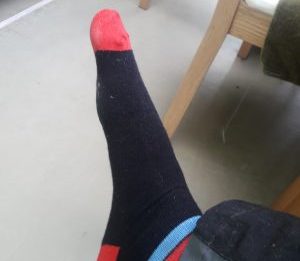
 Then a series of bags and containers that have to be assembled very carefully in a specific order, Russian doll-like, when you do the actual test. Weird, I thought I’d already started, and then I notice in the book of instructions – that was in the bag – that I shouldn’t open the bag without washing my hands for 20 seconds, and that I should also clean all the surfaces before I get them out, but I haven’t finished the box; but then I shouldn’t have started, because I’ve got to clean everything first. How the fuck am I meant to know that, as, to read it, I’ve had to open the bag? So now I clean everything because it’s wrong. Could have Covid on it. So I go back and I wipe everything and I think I’d better finish the box, or maybe not? Maybe I should unfold and start all over again, in case I’ve missed something in the instructions? When I do read the instructions, I say “thank goodness I didn’t just see the big cotton bug and stick it up my nose and throat,” and then it tells me to do that anyway, but it must be an hour before the collection at our priority letter box, and we mustn’t touch anything with the cotton bud apart from two and half centimeters up my nose and the back of my throat. By this time I’m feeling so much better: I mean I’ve made the box, laid everything out and I’ve cleaned everything three time,s and I’ve learnt a lot about my area and where our priority post boxes aren’t, probably super spreading all the while. So then I find the link to the you tube video – which is handily in the booklet – so much easier to click on a link in paper instruction booklet – or rather it isn’t – but I manage to type it and link to Ali, the nice man who explains everything handily and simpl,y including which things might not be in the kit they’ve sent me. He says he know it’s a bit fiddly and frustrating but not too much he hopes, as I guess I could be feverish and confused at this point. He then reminds me to wash my hands for twenty seconds exactly. I nearly scald myself with the tap, but guess that’ll kill Covid as well. He also shows me how to stick a cotton bud in my throat and up my nose without touching anything else with the fabric. This all needs to go into the tube with liquid, and I must snap off the handle and close the tube without contaminating the contents. At this point I have a headache and have discovered how to stimulate a gagging reflex from the back of my throat without touching anything else. But have I rubbed my tonsils, and who knew they weren’t the dangly bits, for fecks sake? Also, this is where it goes into a second tube- that I don’t have – and into two bags: one labelled bio hazard and the other with a pinch seal. All in a specific order, which is then all packaged in my handcrafted origami box, which has a special seal sticker that is in the bag in the box. Bollocks; still, it’s all part of a test, so I backtrack and seal the box thankfully with all the contents. I’m now running late for the priority collection, so in my feverish and somewhat confused state I, masked to the eyeball, stagger to the priority post box, narrowly evading non-socially-distancing pedestrians who ring the post box.
Then a series of bags and containers that have to be assembled very carefully in a specific order, Russian doll-like, when you do the actual test. Weird, I thought I’d already started, and then I notice in the book of instructions – that was in the bag – that I shouldn’t open the bag without washing my hands for 20 seconds, and that I should also clean all the surfaces before I get them out, but I haven’t finished the box; but then I shouldn’t have started, because I’ve got to clean everything first. How the fuck am I meant to know that, as, to read it, I’ve had to open the bag? So now I clean everything because it’s wrong. Could have Covid on it. So I go back and I wipe everything and I think I’d better finish the box, or maybe not? Maybe I should unfold and start all over again, in case I’ve missed something in the instructions? When I do read the instructions, I say “thank goodness I didn’t just see the big cotton bug and stick it up my nose and throat,” and then it tells me to do that anyway, but it must be an hour before the collection at our priority letter box, and we mustn’t touch anything with the cotton bud apart from two and half centimeters up my nose and the back of my throat. By this time I’m feeling so much better: I mean I’ve made the box, laid everything out and I’ve cleaned everything three time,s and I’ve learnt a lot about my area and where our priority post boxes aren’t, probably super spreading all the while. So then I find the link to the you tube video – which is handily in the booklet – so much easier to click on a link in paper instruction booklet – or rather it isn’t – but I manage to type it and link to Ali, the nice man who explains everything handily and simpl,y including which things might not be in the kit they’ve sent me. He says he know it’s a bit fiddly and frustrating but not too much he hopes, as I guess I could be feverish and confused at this point. He then reminds me to wash my hands for twenty seconds exactly. I nearly scald myself with the tap, but guess that’ll kill Covid as well. He also shows me how to stick a cotton bud in my throat and up my nose without touching anything else with the fabric. This all needs to go into the tube with liquid, and I must snap off the handle and close the tube without contaminating the contents. At this point I have a headache and have discovered how to stimulate a gagging reflex from the back of my throat without touching anything else. But have I rubbed my tonsils, and who knew they weren’t the dangly bits, for fecks sake? Also, this is where it goes into a second tube- that I don’t have – and into two bags: one labelled bio hazard and the other with a pinch seal. All in a specific order, which is then all packaged in my handcrafted origami box, which has a special seal sticker that is in the bag in the box. Bollocks; still, it’s all part of a test, so I backtrack and seal the box thankfully with all the contents. I’m now running late for the priority collection, so in my feverish and somewhat confused state I, masked to the eyeball, stagger to the priority post box, narrowly evading non-socially-distancing pedestrians who ring the post box.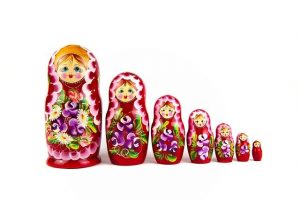

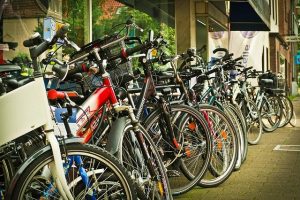


 Like any point that can be occupied, it has a defined area and edges, although faces might be more visual. These surround the centre of the plot and can be defined, or limited or, apparently, infinite. At least your eye could just keep travelling infinitely upward, but be under no illusion – the plot has limits. For a start, you can only really see things one way. When you look at something, you’re not looking at something else. Or is that a limitation in us and not the plot? I guess how this limitation changes us could only really be tested if we were like, maybe, ducks, with eyes on the side of our heads, or maybe the compound eye of a fly or nine eyes in or across our back. Anyway, within the plot, we are with our two eyes placed in parallel mounted on the front of our face giving us stereoscopic vision, and we have the element of time allowing for movement. Particularly rotation – the capacity to look different ways and then remember what we’ve seen before. But do we remember, or does what we see in the immediate downgrade our memory? Should I have asked this?
Like any point that can be occupied, it has a defined area and edges, although faces might be more visual. These surround the centre of the plot and can be defined, or limited or, apparently, infinite. At least your eye could just keep travelling infinitely upward, but be under no illusion – the plot has limits. For a start, you can only really see things one way. When you look at something, you’re not looking at something else. Or is that a limitation in us and not the plot? I guess how this limitation changes us could only really be tested if we were like, maybe, ducks, with eyes on the side of our heads, or maybe the compound eye of a fly or nine eyes in or across our back. Anyway, within the plot, we are with our two eyes placed in parallel mounted on the front of our face giving us stereoscopic vision, and we have the element of time allowing for movement. Particularly rotation – the capacity to look different ways and then remember what we’ve seen before. But do we remember, or does what we see in the immediate downgrade our memory? Should I have asked this?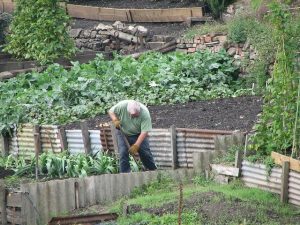 ’What does he do?’ Yeah he looks like an editor. Another part continues to weed and dig the border. I don’t ask for detail, just as I don’t ask her is she scared? Because I know it puts me in the wrong territory. I must not be too interested. We are allowed to compare our plots, but with self critical amusement and irony, and without actually saying what we think. He is jumpy, small head, suspicious, thinks I’m going to be too close to his beloved. She, girlish, frail, dry dark humoured, has the air of not-quite-dead crow, road kill, limping but bright-eyed and sharp, able to forage and possibly exaggerating her gait. Her mask is medical grade, not cheap disposable, no full PPE filter. She takes pride in it.
’What does he do?’ Yeah he looks like an editor. Another part continues to weed and dig the border. I don’t ask for detail, just as I don’t ask her is she scared? Because I know it puts me in the wrong territory. I must not be too interested. We are allowed to compare our plots, but with self critical amusement and irony, and without actually saying what we think. He is jumpy, small head, suspicious, thinks I’m going to be too close to his beloved. She, girlish, frail, dry dark humoured, has the air of not-quite-dead crow, road kill, limping but bright-eyed and sharp, able to forage and possibly exaggerating her gait. Her mask is medical grade, not cheap disposable, no full PPE filter. She takes pride in it.